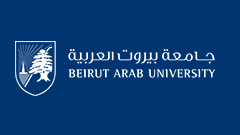Keywords
SDG 16, democracy, participation, elections, district, representation, gerrymandering.
Disciplines
Architecture | Business | Engineering | Life Sciences
Abstract
The 2030 Agenda for Sustainable Development addresses democracy in Sustainable Development Goal 16 recognizing the indivisible links between peaceful societies and effective, accountable and inclusive institutions. Sustainable Development Goal 16 calls on UN Member States to promote responsive, inclusive, participatory and representative decision-making, and to build effective, accountable and transparent institutions at all levels. Thus, Elections are an integral part of the Sustainable Development Goal 16: “Peace, Justice and Strong Institutions” offer specific guidelines to tackle imperative challenges such as building effective, accountable and inclusive institutions; guaranteeing election integrity and trust; and ensuring responsive, inclusive, participatory and representative decision-making at all levels. In Lebanon, the new electoral law adopted a proportional system with a preferential vote and divided Lebanon into 15 constituencies. Referring to the Goal 16 "Peace, Justice and Effective Institutions", the paper aims to address the political representation issue in Lebanon, and its connection with the division of constituencies. Furthermore, the paper will demonstrate that the proportional electoral system adopted for the 2018 elections did not allow a mitigation of the repercussions of the divisions on the electoral results, but rather widely amplified them.
Recommended Citation
Mourad, Ali
(2019)
"DEMOCRATIC ELECTIONS AND SUSTAINABLE DEVELOPMENT:THE CASE OF ELECTORAL DISTRICT AND REPRESENTATION IN LEBANON,"
BAU Journal - Creative Sustainable Development: Vol. 1:
Iss.
1, Article 8.
DOI: https://doi.org/10.54729/2789-8334.1007
ISSN
2789-8334

